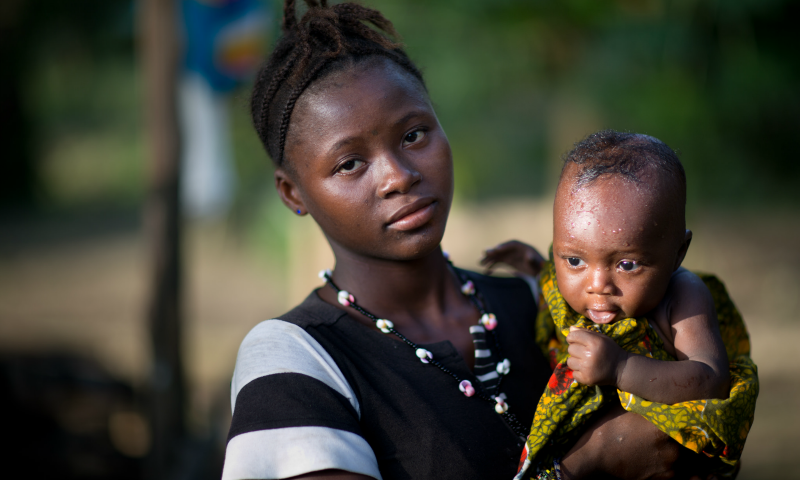
Marie Tarawally disembarks slowly from the motorbike taxi, holding baby Yusufu. The two have travelled seven miles along the dusty roads that connect their village, Robuya, to Pate Bana Marank community health centre, in Bombali district, northern Sierra Leone.
The World Health Organization declared Sierra Leone free from Ebola transmission on 7 November 2015, but the disease is still very much in people’s minds. Marie’s village was the last in the country to record a case. Pate Bana Marank was one of the worst affected communities in the country, with 119 Ebola deaths recorded.
But even during the height of the Ebola crisis, Ebola was not the biggest killer. Sierra Leone has one of the highest rates of under-5 child mortality in the world, with 120 deaths per 1,000 live births, and the world’s highest maternal mortality ratio, with 1,360 per 100,000 live births.
The government and partners are looking to end preventable child and mother deaths. UNICEF has been working with such partners as the European Union, the United Kingdom of Great Britain and Northern Ireland’s Department for International Development (DfID) and the United States Agency for International Development (USAID) to support the government’s Free Health Care initiative, launched by H.E. President Dr. Ernest Bai Koroma in 2010. Support includes supplies of lifesaving drugs for the treatment of common childhood illnesses, and to help pregnant mothers deliver safely. Antibiotics, deworming tablets and oral rehydration salts are part of package that is available free of charge at all peripheral health facilities, as well as in hospitals, for pregnant and lactating mothers and children up to 5 years of age.
To read more, please click here.
Source & Copyright: UNICEF
 Welcome to the United Nations
Welcome to the United Nations